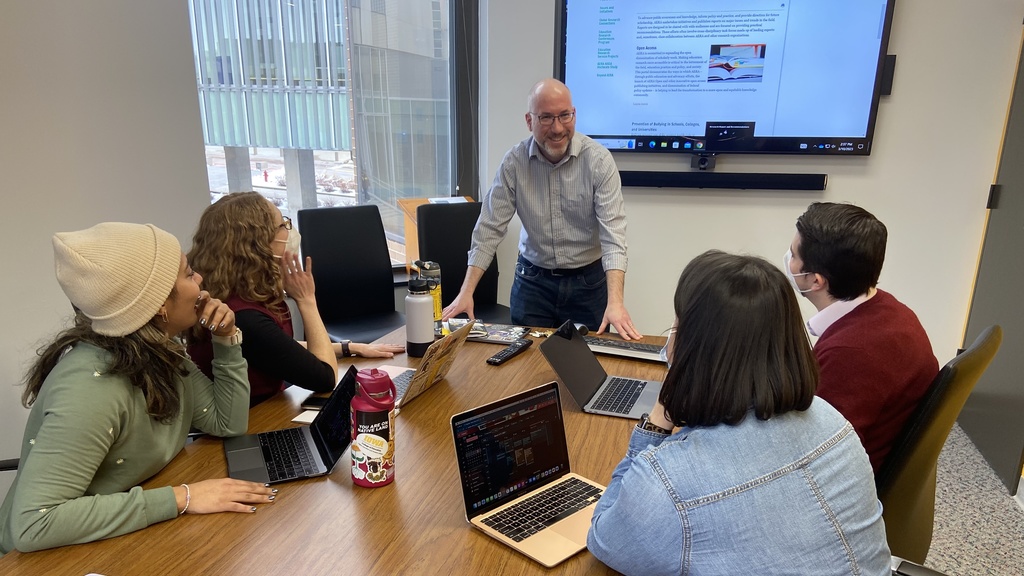Filter by topic
Academic Motivation
Basic Needs Insecurity
Broton, K. M. (in press). Poverty in American higher education: The relationship between housing insecurity and academic attainment. Journal of Postsecondary Student Success.
College Access/Choice/Enrollment
College Outcomes - Affective/Psychosocial
Brandenberger, J. W., & Bowman, N. A. (2013). Reciprocal influences of spirituality, religious commitment, and prosocial development during college. In A. Bryant Rockenbach & M. J. Mayhew (Eds.), Spirituality in college students’ lives: Translating research into practice (pp. 121-137). New York, NY: Routledge.
Hill, P. L., Pasquesi, K., Bowman, N. A., & Brandenberger, J. W. (2016). Considerations for improving longitudinal research on civic outcomes. In J. A. Hatcher, R. G. Bringle, and T. W. Hahn (Eds.), Research on student civic outcomes in service learning: Conceptual frameworks and assessment (Volume 3, pp. 283-302). Sterling, VA: Stylus.
Huntrods, C. S., An, B. P., & Pascarella, E. T. (in press). Impact of intercollegiate athletic participation on leadership development. Journal of College Student Development.
Kilgo, C. A., Pasquesi, K., Sheets, J. K. E., & Pascarella, E. T. (2014). The estimated effects of participation in service-learning on liberal arts outcomes. International Journal of Research on Service-Learning and Community Engagement, 1(2).
Kuh, G. D., Kinzie, J., Schuh, J. H., Whitt, E. J., & Associates. (2010). Student success in college: Creating conditions that matter. San Francisco, CA: Jossey-Bass.
Mayhew, M. J., Rockenbach, A. N., Bowman, N. A., Seifert, T. A., & Wolniak, G. C., with Pascarella, E. T. & Terenzini, P. T. (2016). How college affects students (Vol. 3): 21st century evidence that higher education works. San Francisco, CA: Jossey-Bass.
Pascarella, E. T., & Terenzini, P. T. (2005). How college affects students: A third decade of research, Volume 2. San Francisco, CA: Jossey-Bass.
Pascarella, E., Wolniak, G., Seifert, T., Cruce, T. & Blaich, C. (2005). Liberal arts colleges and liberal arts education: New evidence on impacts. San Francisco, CA: Jossey-Bass and the Association for the Study of Higher Education.
Whitt, E.J., Kinzie, J., Schuh, J.H., & Kuh, G.D. (2008). Assessing conditions to enhance student success: How six campuses got started. About Campus, 13(3), 9-18.
Wolniak, G., & Pascarella, E. (2007). Initial evidence on the long-term impacts of work colleges. Research in Higher Education, 48(1), 39-71.
College Outcomes - Cognitive/Critical Thinking
Loes, C. N., & An, B. P. (in press). Study abroad enhances cognitive development. Journal of Student Affairs Research and Practice.
Mayhew, M. J., Bryant Rockenbach, A. N., Bowman, N. A., Seifert, T. A., & Wolniak, G. C., with Pascarella, E. T. & Terenzini, P. T. (2016). How college affects students (Vol. 3): 21st century evidence that higher education works. San Francisco, CA: Jossey-Bass.
Miller, G. N. S., Kilgo, C. A., Archibald, M., & Pascarella, E. T. (Forthcoming). Amending the liberal arts: An analysis of learning outcomes for professional majors. In P. Marber & D. Araya (Eds.), The evolution of liberal arts in the global age. New York, NY: Routledge.
Pascarella, E. T., & Terenzini, P. T. (2005). How college affects students: A third decade of research, Volume 2. San Francisco, CA: Jossey-Bass.
Pascarella, E., Wolniak, G., Seifert, T., Cruce, T. & Blaich, C. (2005). Liberal arts colleges and liberal arts education: New evidence on impacts. San Francisco, CA: Jossey-Bass and the Association for the Study of Higher Education.
College Outcomes - Student Success
Broton, K. M. (in press). Poverty in American higher education: The relationship between housing insecurity and academic attainment. Journal of Postsecondary Student Success.
Loes, C. N., & An, B. P. (in press). Study abroad enhances cognitive development. Journal of Student Affairs Research and Practice.
Mayhew, M. J., Rockenbach, A. N., Bowman, N. A., Seifert, T. A., & Wolniak, G. C., with Pascarella, E. T. & Terenzini, P. T. (2016). How college affects students (Vol. 3): 21st century evidence that higher education works. San Francisco, CA: Jossey-Bass.
Comparative/International
Diversity
Barnhardt, C. L. (2018). Finding feminism: millennial activists and the unfinished gender revolution by Allison Dahl Crossley (Review). American Journal of Sociology, 124(1), 244-246.
Barnhardt, C. L., & Limani, A. (in press). In M. Öztürk (Ed.), Educational response, inclusion and empowerment for SDGs (Sustainable Development Goals) in emerging economies: How do education systems contribute to raise global citizens? Springer.
Barnhardt, C. L., Mollet, A., Phillips, C. W., Young, R. L., & Sheets, J. K.E. (2018). University Leaders' Public Advocacy: An Educational asset in Creating Inclusive Climates. Teachers College Record, 120 (9).
Barnhardt, C. L., & Phillips, C.W. (2018). At the margins of university work: The influence of campus climate and part-time faculty status on academic values. Journal of Academic Freedom, 9, p. 1-21.
Bettencourt, G. M., Irwin, L. N., Todorova, R., Hallett, R. E., & Corwin, Z. B. (in press). The possibilities and precautions of using the designation “at-promise” in higher education research. Journal of Postsecondary Student Success.
Bowman, N. A. (2016). Religiously unaffiliated students in the United States: Characteristics, experiences, and outcomes. In K. Aune & J. Stevenson (Eds.), Religion and higher education in Europe and North America (pp. 55-68). New York, NY: Routledge
Foste, Z. & Irwin, L. N. (in press). Race, whiteness, and student life in on-campus housing: A case study of three universities. American Educational Research Journal.
Irwin, L. N. (2021). Student affairs leadership educators’ negotiations of racialized legitimacy. Journal of Leadership Education, 20(4), 132-151.
Irwin, L. N. (2022). White normativity: Tracing historical and contemporary (re)productions of whiteness in higher education. In Z. Foste & T. Tevis (Eds.), Critical whiteness praxis in higher education & student affairs: Considerations for the pursuit of racial justice on campus (pp. 48-69). Stylus.
Irwin, L. N. & Posselt, J. R. (2022). A critical discourse analysis of mainstream college student leadership development models. Journal of Leadership Education, 21(4), 76-97.
Linley, J. L., & George-Jackson, C. E. (2013). Addressing underrepresentation in STEM fields through undergraduate interventions. In S. K. Watt & J. L. Linley (Eds.). Creating successful multicultural initiatives in higher education and student affairs: New Directions for Student Services, 144, 97-102.
Linley, J. L., & Nguyen, D. (2015). LGBTQ experiences in curricular contexts. In Stewart, D.L., Renn, K., & Brazelton, G.B. (Eds.), New Directions for Student Services (152), 41-53.
Linley, J. L., & Watt, S. K. (2015). Facing the proverbial lion in the room. In Watt, S. K. (Ed.) Designing Transformative Multicultural Initiatives: Theoretical Foundations, Practical Applications and Facilitator Considerations (pp. 220-231). Sterling, VA: Stylus.
Liu, J., & Barnhardt, C. L. (in press). STEM-ing the tide: The influence of the first year of college on the STEM gender gap. Journal of College Student Development.
Mohebali, M., Louie, G., Weaver, K., Watt, S. K. (2021). Engaging head, heart, and hands toward Freirean praxis: Process-oriented research in the age of evidence-based outcomes. In T. M. Kress, R. Lake, E. L. Stein (Eds), Radically dreaming: Illuminating Freirean praxis in turbulent times. DIO Press.
Turman, N. & Irwin, L. N. (in press). Centering Minority-Serving Institutions to counter dominant narratives about leadership identity development. In J. E. Owen (Ed.), New Directions for Student Leadership, No. 178. Wiley.
Watt, S. K. & Linley, J. L. (Eds.). (2013). Creating successful multicultural initiatives in higher education and student affairs: New Directions for Student Services, 144. John Wiley & Sons.
Dual Enrollment
Engagement
Bowman, N. A. (2016). Religiously unaffiliated students in the United States: Characteristics, experiences, and outcomes. In K. Aune & J. Stevenson (Eds.), Religion and higher education in Europe and North America (pp. 55-68). New York, NY: Routledge
Irwin, L. N., Reynolds., D. J., Bitton, A. L., Hassell-Goodman, S., Teig, T., & Tapia-Fuselier, N. (in press). Insights from a critical qualitative inquiry in leadership scholarship. In S. R. Komives & J. E. Owen (Eds.), A research agenda for learning and developing leadership in higher education. Edward Elgar Publishing.
Loes, C. N., & An, B. P. (in press). Study abroad enhances cognitive development. Journal of Student Affairs Research and Practice.
Pasque, P. A., Bowman, N. A., & Martinez, M. (Eds.). (2009). Critical issues in higher education for the public good: Qualitative, quantitative,and historical research perspectives. Kennesaw, GA: Kennesaw State University Press.
Turman, N. & Irwin, L. N. (in press). Centering Minority-Serving Institutions to counter dominant narratives about leadership identity development. In J. E. Owen (Ed.), New Directions for Student Leadership, No. 178. Wiley.
First Year
Liu, J., & Barnhardt, C. L. (in press). STEM-ing the tide: The influence of the first year of college on the STEM gender gap. Journal of College Student Development.
Padgett, R. D., Keup, J. R., & Pascarella, E. T. (2013). The Impact of First-Year Seminars on College Students’ Life-long Learning Orientations. Journal of Student Affairs Research and Practice, 50(2), 133-151.
Fraternity and Sorority
LGBTQ
Linley, J. L., & Nguyen, D. (2015). LGBTQ experiences in curricular contexts. In Stewart, D.L., Renn, K., & Brazelton, G.B. (Eds.), New Directions for Student Services (152), 41-53.
Methodology
Bettencourt, G. M., Irwin, L. N., Todorova, R., Hallett, R. E., & Corwin, Z. B. (in press). The possibilities and precautions of using the designation “at-promise” in higher education research. Journal of Postsecondary Student Success.
Bowman, N. A., & Brandenberger, J. W. (2010). Quantitative assessment of service-learning outcomes: Is self-reported change an adequate proxy for longitudinal change? In J. Keshen, B. Holland, & B. Moely (Eds.), Research for what? Making engaged scholarship matter (Advances in Service-Learning Research, Vol. 10, pp. 25-43). Charlotte, NC: Information Age Publishing.
Bowman, N. A., & Herzog, S. (Eds.). (2014). Methodological advances and issues in studying college impact (New Directions for Institutional Research, no. 161). San Francisco, CA: Jossey-Bass.
Chambers, A., & Bowman, N. A. (2009). Progressing toward the public good: Current conceptions, future directions, and potential challenges. In P. A. Pasque, N. A. Bowman, & M. Martinez (Eds.), Critical issues in higher education for the public good: Qualitative, quantitative, and historical perspectives (pp. 263-279). Kennesaw, GA: Kennesaw State University Press.
Hill, P. L., Pasquesi, K., Bowman, N. A., & Brandenberger, J. W. (2016). Considerations for improving longitudinal research on civic outcomes. In J. A. Hatcher, R. G. Bringle, and T. W. Hahn (Eds.), Research on student civic outcomes in service learning: Conceptual frameworks and assessment (Volume 3, pp. 283-302). Sterling, VA: Stylus.
Irwin, L. N., Reynolds., D. J., Bitton, A. L., Hassell-Goodman, S., Teig, T., & Tapia-Fuselier, N. (in press). Insights from a critical qualitative inquiry in leadership scholarship. In S. R. Komives & J. E. Owen (Eds.), A research agenda for learning and developing leadership in higher education. Edward Elgar Publishing.
Kuh, G. D., Kinzie, J., Schuh, J. H., Whitt, E. J. (2005). Assessing conditions to enhance educational effectiveness: The inventory for student engagement and success. San Francisco, CA: Jossey-Bass.
Pasque, P. A., Bowman, N. A., & Martinez, M. (Eds.). (2009). Critical issues in higher education for the public good: Qualitative, quantitative, and historical research perspectives. Kennesaw, GA: Kennesaw State University Press.
Whitt, E.J., Kinzie, J., Schuh, J.H., & Kuh, G.D. (2008). Assessing conditions to enhance student success: How six campuses got started. About Campus, 13(3), 9-18.
Young, R. L & Michelau, D. (2016). Translating research into policy to increase equity in higher education: Lessons learned from the ASHE-WICHE collaborative. Adapted from S. M. Flores, et al., Translating research into policy to reduce inequality in state higher education outcomes: Lessons learned from the ASHE-WICHE collaborative. Policy Insights, 2A40016C. Boulder, CO: Western Interstate Commission for Higher Education.
Organizational Leadership
Barnhardt, C. L., & Limani, A. (in press). In M. Öztürk (Ed.), Educational response, inclusion and empowerment for SDGs (Sustainable Development Goals) in emerging economies: How do education systems contribute to raise global citizens? Springer.
Race/Ethnicity
Foste, Z. & Irwin, L. N. (in press). Race, whiteness, and student life in on-campus housing: A case study of three universities. American Educational Research Journal.
Irwin, L. N. (2022). White normativity: Tracing historical and contemporary (re)productions of whiteness in higher education. In Z. Foste & T. Tevis (Eds.), Critical whiteness praxis in higher education & student affairs: Considerations for the pursuit of racial justice on campus (pp. 48-69). Stylus.
Irwin, L. N. (2021). Student affairs leadership educators’ negotiations of racialized legitimacy. Journal of Leadership Education, 20(4), 132-151.
Irwin, L. N. (in press). White normativity: Tracing historical and contemporary (re)productions of whiteness in higher education. In Z. Foste & T. Tevis (Eds.), Critical whiteness praxis in higher education & student affairs: Considerations for the pursuit of racial justice on campus. Stylus.
Irwin, L. N. & Posselt, J. R. (2022). A critical discourse analysis of mainstream college student leadership development models. Journal of Leadership Education, 21(4), 76-97.
Linley, J. L., & George-Jackson, C. E. (2013). Addressing underrepresentation in STEM fields through undergraduate interventions. In S. K. Watt & J. L. Linley (Eds.). Creating successful multicultural initiatives in higher education and student affairs: New Directions for Student Services, 144, 97-102.
Linley, J. L., & Watt, S. K. (2015). Facing the proverbial lion in the room. In Watt, S. K. (Ed.) Designing Transformative Multicultural Initiatives: Theoretical Foundations, Practical Applications and Facilitator Considerations (pp. 220-231). Sterling, VA: Stylus.
Mohebali, M., Louie, G., Weaver, K., Watt, S. K. (2021). Engaging head, heart, and hands toward Freirean praxis: Process-oriented research in the age of evidence-based outcomes. In T. M. Kress, R. Lake, E. L. Stein (Eds), Radically dreaming: Illuminating Freirean praxis in turbulent times. DIO Press.
Turman, N. & Irwin, L. N. (in press). Centering Minority-Serving Institutions to counter dominant narratives about leadership identity development. In J. E. Owen (Ed.), New Directions for Student Leadership, No. 178. Wiley.
Yao, C. W., Oates, E., Briscoe, K., & Buell, K. J., & Rutt, J. (in press). Re/negotiating race and racialization for international students of color in the U.S. Journal of College Student Development.
Ranking
Bowman, N. A., & Bastedo, M. N. (2013). Anchoring effects in world university rankings: Reputation score biases and implications for emerging societies. In D. Araya & P. Marber (Eds.), Higher education in the global age: Universities, interconnections, and emerging societies (pp. 271-287). New York, NY: Routledge.
Young, R. L. (In press). Attainment and completion goals in the West. Policy Insights. Boulder, CO: Western Interstate Commission for Higher Education.
Young, R. L. & Morphew, C. C. (In Press). Privatization, higher education. In. P. N. Teixeira & J. Shin (Eds.) Encyclopedia of international higher education systems and institutions. Dordrecht, The Netherlands: Springer.
Religion
Bowman, N. A. (2016). Religiously unaffiliated students in the United States: Characteristics, experiences, and outcomes. In K. Aune & J. Stevenson (Eds.), Religion and higher education in Europe and North America (pp. 55-68). New York, NY: Routledge
Bowman, N. A., & Small, J. L. (2013). The experiences and spiritual growth of religiously privileged and religiously marginalized college students. In A. Bryant Rockenbach & M. J. Mayhew (Eds.), Spirituality in college students’ lives: Translating research into practice (pp. 19-34). New York, NY: Routledge.
Brandenberger, J. W., & Bowman, N. A. (2013). Reciprocal influences of spirituality, religious commitment, and prosocial development during college. In A. Bryant Rockenbach & M. J. Mayhew (Eds.), Spirituality in college students’ lives: Translating research into practice (pp. 121-137). New York, NY: Routledge.
Felix, V., & Bowman, N. A. (2015). A historical and research overview of religious/worldview identification in higher education. In J. L. Small (Ed.), Making meaning: Embracing spirituality, faith, religion, and life purpose in student affairs (pp. 37-57). Sterling, VA: Stylus.
Research on Iowa Student Experiences (RISE) Reports
Social/Civic/Political Engagement and Activism
Barnhardt, C. L. (2017). Private Philanthropic Foundations’ Social Agendas and the Field of Higher Education. In M. B. Paulsen (Eds.), Higher Education: Handbook of Theory & Research (vol. 32, pp. 181-257). Springer. DOI:10.1007/978-3-319-48983-4_5
Barnhardt, C. L. (2018). Finding feminism: millennial activists and the unfinished gender revolution by Allison Dahl Crossley (Review). American Journal of Sociology, 124(1), 244-246.
Barnhardt, C. L. (2018). The lives of campus custodians: Insights into corporatization and civic disengagement in the academy. by Peter Magolda (Review). Contemporary Sociology, 47(2), 202-204.
Barnhardt, C. L. (2019). Brokering students’ political activism: A response for expanding student affairs professionals’ views. In P.M. Magolda, M.B. Baxter Magolda, & R. Carducci (Eds.), Contested issues in troubled times: Student affairs dialogues on equity, civility, and safety (pp. TBD). Sterling, VA: Stylus.
Barnhardt, C. L. (2019). Speak freely: Why universities must defend free speech by Keith E. Whittington (Review). Teachers College Record, TBD.
Barnhardt, C. L. (2019). The promise and struggles of campus-based student activism. In P.A. Sasso & J. L. DeVitis (Eds.), Student activism in the academy: Its struggles and promise (pp. TBD), Myers Publishing: Gorham, ME.
Barnhardt, C. L. (in press). Newfield as a new field? The substance and subjectivities of a cross-disciplinary voice in the public domain. In J. L. DeVitis (Ed.), Engaging minds: Today’s public intellectuals and American higher education. Stylus.
Socialization
Socioeconomic Status
Broton, K. M. (in press). Poverty in American higher education: The relationship between housing insecurity and academic attainment. Journal of Postsecondary Student Success.
Broton, K. M., Mohebali, M., & Lingo, M. (in press). Basic needs insecurity and mental health: Community college students’ dual challenges and use of social support. Community College Review.
Wolniak, G., & Pascarella, E. (2007). Initial evidence on the long-term impacts of work colleges. Research in Higher Education, 48(1), 39-71.
Student Affairs/Academic Affairs
Barnhardt, C. L. (2019). Brokering students’ political activism: A response for expanding student affairs professionals’ views. In P. M. Magolda, M. B. Baxter Magolda, & R. Carducci (Eds.), Contested issues in troubled times: Student affairs dialogues on equity, civility, and safety (pp. TBD). Sterling, VA: Stylus.
Barnhardt, C. L., & Phillips, C. W. (2017). A Developmental Perspective on Organizing for Social Responsibility: A Task for Higher Education Organizations and Scholars. In J. Huisman & M. Tight (Eds.), Theory and Method in Higher Education Research (vol. 3, pp. 77-97). Bingly, UK: Emerald Publishing Limited.
Broton, K. M., Mohebali, M., & Lingo, M. (in press). Basic needs insecurity and mental health: Community college students’ dual challenges and use of social support. Community College Review.
Foste, Z. & Irwin, L. N. (in press). Race, whiteness, and student life in on-campus housing: A case study of three universities. American Educational Research Journal.
Irwin, L. N. (2022). White normativity: Tracing historical and contemporary (re)productions of whiteness in higher education. In Z. Foste & T. Tevis (Eds.), Critical whiteness praxis in higher education & student affairs: Considerations for the pursuit of racial justice on campus (pp. 48-69). Stylus.
Irwin, L. N. (in press). White normativity: Tracing historical and contemporary (re)productions of whiteness in higher education. In Z. Foste & T. Tevis (Eds.), Critical whiteness praxis in higher education & student affairs: Considerations for the pursuit of racial justice on campus. Stylus.
Turman, N. & Irwin, L. N. (in press). Centering Minority-Serving Institutions to counter dominant narratives about leadership identity development. In J. E. Owen (Ed.), New Directions for Student Leadership, No. 178. Wiley.
Umbach, P.D., Padgett, R.D., & Pascarella, E.T. (2010). The impact of working on undergraduate students’ interactions with faculty. In L. W. Perna (Ed.), Understanding the meaning of 'work' for today's undergraduates (pp. 234-257). Sterling, VA: Stylus Publishing, LLC.
Wells, R., Seifert, T., Park, S., Reed, E., & Umbach, P. (2007). Job satisfaction of international faculty in U.S. higher education. Journal of the Professoriate, 2(1), 5-32.
Student Development
Student-Faculty Interaction
Study Abroad/International Students
Katsumoto, S., Stroup, N., & Barnhardt, C. L. (in press). Unsettling experiences: Factors that discourage international students from desiring research and teaching careers. AERA Open.
Loes, C. N., & An, B. P. (in press). Study abroad enhances cognitive development. Journal of Student Affairs Research and Practice.
Yao, C. W., Oates, E., Briscoe, K., & Buell, K. J., & Rutt, J. (in press). Re/negotiating race and racialization for international students of color in the U.S. Journal of College Student Development.
Teaching
Barnhardt, C. L. (in press). Newfield as a new field? The substance and subjectivities of a cross-disciplinary voice in the public domain. In J. L. DeVitis (Ed.), Engaging minds: Today’s public intellectuals and American higher education. Stylus.
Linley, J. L., & George-Jackson, C. E. (2013). Addressing underrepresentation in STEM fields through undergraduate interventions. In S. K. Watt & J. L. Linley (Eds.). Creating successful multicultural initiatives in higher education and student affairs: New Directions for Student Services, 144, 97-102.
Linley, J. L., & Nguyen, D. (2015). LGBTQ experiences in curricular contexts. In Stewart, D.L., Renn, K., & Brazelton, G.B. (Eds.), New Directions for Student Services (152), 41-53.
Sheets, J. K. E., Barnhardt, C. L., Phillips, C. W., & Valdes, P.H. (2018). The impact of faculty work-life factors on faculty service morale. Journal of Faculty Development, 32(2), 1-13.
Watt, S.K. & Linley, J. L. (Eds.). (2013). Creating successful multicultural initiatives in higher education and student affairs: New Directions for Student Services, 144. John Wiley & Sons.
Whitt, E.J. (2006). Are all of your educators educating? About Campus, 10(6), 2-9.
WNSLAE Methods Section
How College Affects Students Methodology Appendix
Introduction to Wabash National Study (Fall 2013)
Methodological and Analytical Issues in Assessing the Influence of College
Quantitative Methods Section for the Wabash National Study of Liberal Arts Education
More News
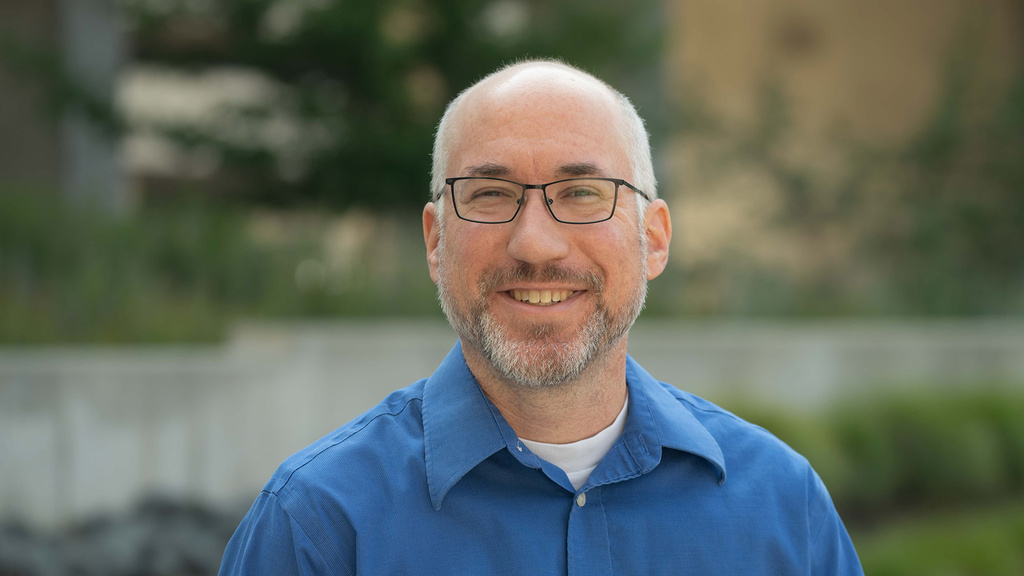
In the news: Bowman’s research investigates how introductory STEM courses affect academic success

In the news: Bowman-led research highlights impact of diversity in STEM
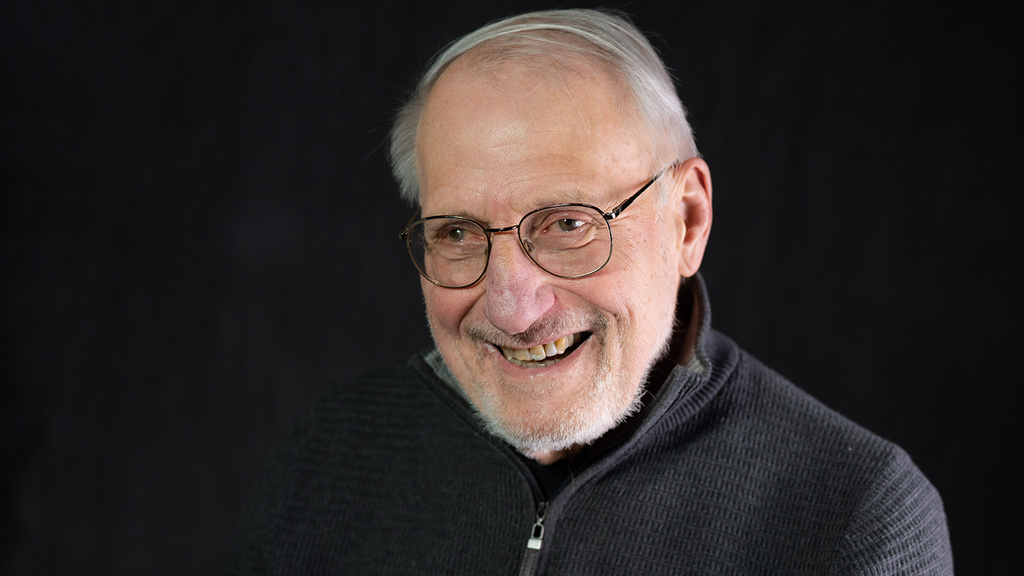
Dr. Ernest Pascarella Memorial fund honors the late professor, supports students
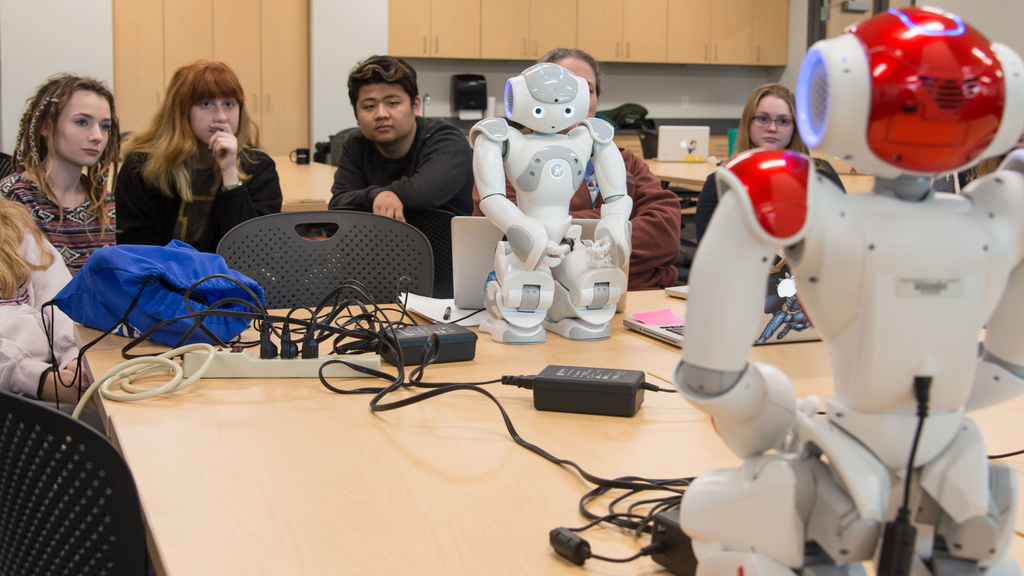
Study: diverse college classrooms linked to better STEM learning outcomes for all students
Faculty, Staff and Student 2022-23 Awards
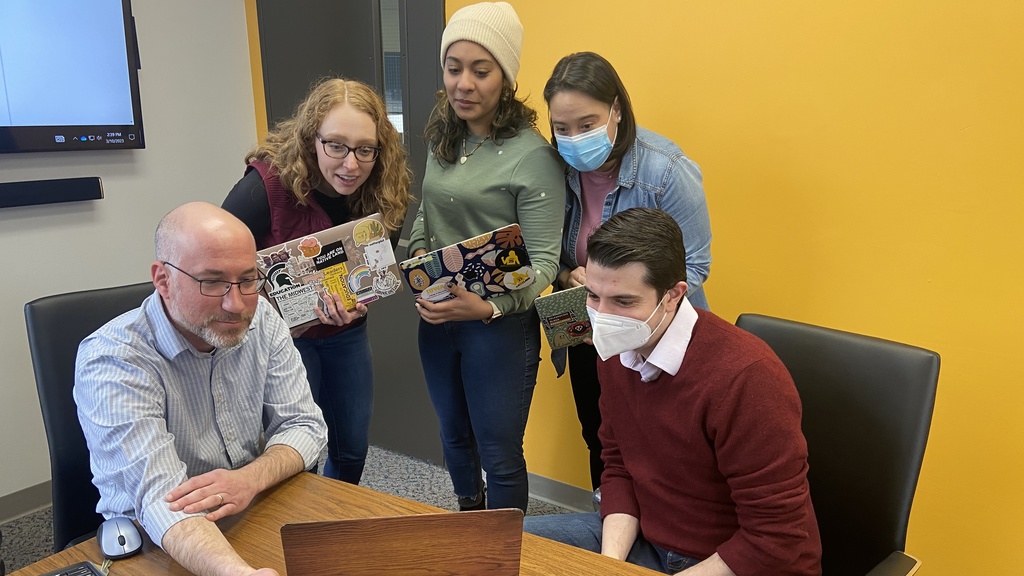
Bowman named new editor-in-chief of premier journal, Educational Researcher
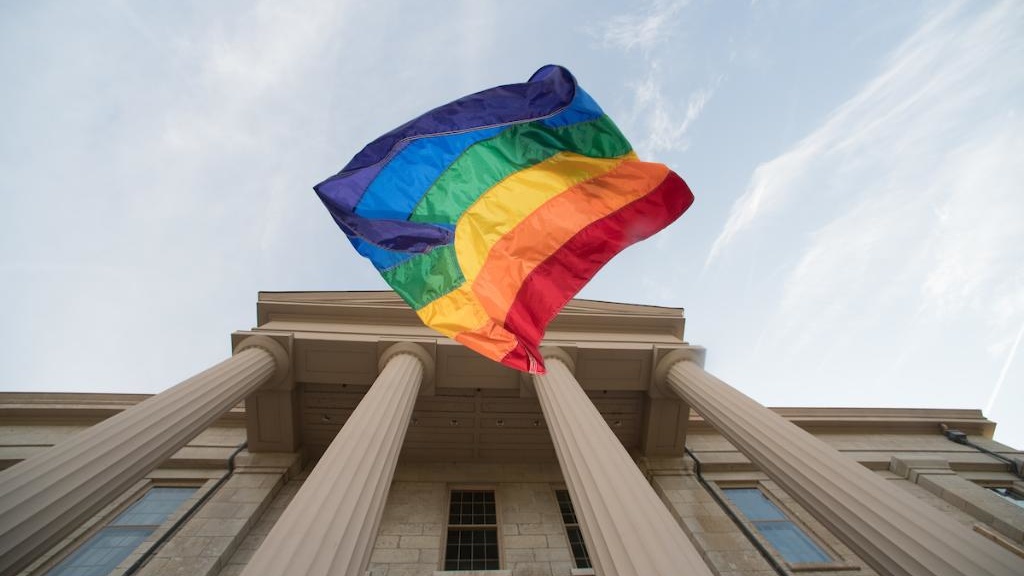
UI faculty, alumni net grant to help LGBTQ+ students thrive on campus
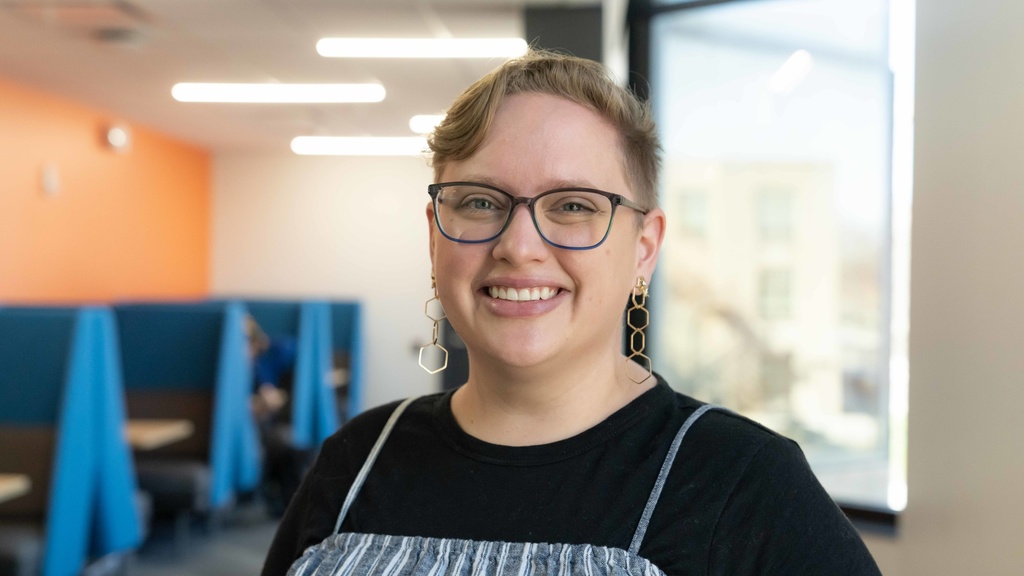
Tennessen seeks understanding of how data is used to support student success
